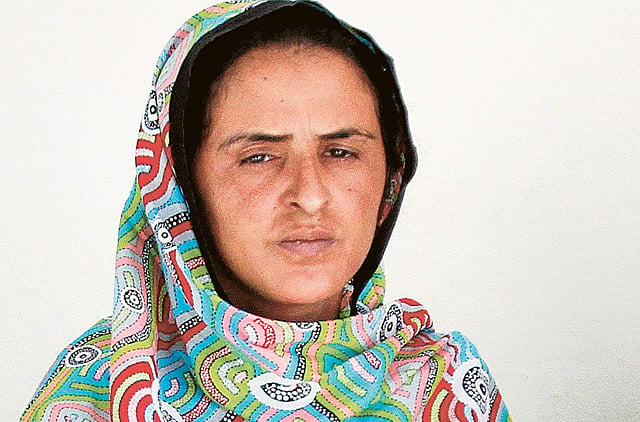Q: You are aware of the tragedy of the Indian rape victim. What are your sentiments on this incident?
A: “I am deeply grieved, at the treatment and injustice of women, which is the failure of our government and our legal systems. Laws can be changed but only in books, there is no implementation as long as there is no implementation and no punishment is inflicted, then who will take ibraat (an example and deter from committing such a crime again). If a death sentence is given or the life imprisonment, people will take ibraat. If a 100 people will come to know that it’s a wrong thing they won’t do it. Why doesn’t our government do it? Why don’t our legal institutions do it? From police stations to courts? From government to parliament?
Audio clip: Mukhtaran Mai speaks to Faryal Leghari of Gulf News
Q: Even if the laws are changed, is the punishment of a few years enough to deter people?
A: “we don’t want ziadti (tyranny and force) on women, girls, boys; even boys are not safe now. This is happening all over the world, but there are laws and punishments are given, but not in Pakistan and India. They go for nine, nine years struggling and getting pushed and shoved in the courts, the police stations and the rapists get free after a few years.”
Q: Have things changed now and have women become more emboldened now to speak against injustices inflicted on them?
A: “Women used to not speak up, not come forward, now which woman stays back? They come forward, they speak but they don’t get justice. Where can a woman get four witnesses from to testify for rape? I gave them 70 witnesses then why didn’t they give me justice?”
Q: What’s the solution if even change in laws cannot bring women justice?
A: “The solution is there are fewer women. Everywhere there are men, in the police, in the legal courts, if there are more women there will be less injustices and less tyranny. If laws are changed and women are facilitated to come forward but it’s along process. Women all over the world are hurt about this incident. As are elders, parents, all those people who have wives and daughters get hurt and are affected”.
Q: What is your message to the Indian government and society following this heinous crime?
A: “I want to request the legal system there, the government there, that this girl has died but her family should get justice. Those who did this shameful act should be given exemplary punishment. It will create fear among others and give himmat (strength) and support to other women and girls.”
Q: You have shown a lot of courage, after having gone through a terrible trauma yourself? How do you feel when you hear of similar incidents?
A: “I feel angry, so angry; I feel if it was in my hands I should inflict punishment myself on those who commit such acts.”
Q: Are you satisfied with the punishment your attackers got?
A: “I am not satisfied but I have appealed, though I have no hope. But the bigger adalat (court) is of Allah. He is the one to punish.”
Q: your courage to pick the pieces of your life and move on are commendable. How do you feel now about where you stand? Have you got support from women in Pakistan?
A: “Thank God, I have a lot of support. I have a school, my children are with me, and people respect me.”
Q: What punishment should be given to those who raped this girl?
A: “They should get death sentence, if not then life imprisonment. They should be lashed publicly so people get ibraat, whether it’s Pakistan or India”.
Q: it takes very long for our laws to take process?
A: “I have suffered nine years, going from police stations to civil courts to high courts to the Supreme Court. I can only appeal through your channel. The punishment you and I feel is right should take place but our legal systems and governments will do what they feel. The thing is that laws can be changed, it’s not a big deal but practicing these is the big thing.”
Q: Do you feel that this malaise in society, of inflicting tyranny and sexual attacks on women, is because of some sort of failure in the upbringing of men? Are we women responsible in some way for this?
A: “It’s not because of mothers, it does happen but it’s not necessary. Sometimes boys are like that psychologically or because of their peers in society, or because they don’t have homes and settled environments they do bad deeds. Its not correct t o blame mothers that also give birth to them. But it’s right, that in our culture and society boys get preference, they get better education, clothes food over women. Some mothers and parents do this in villages, they allow their sons to get away with what wrongs they commit. It’s the same story of my household.
“I have changed what I could through education by going from home to home and teaching people that daughters are a gift from God and preference should be given to girls.”
Q: what is the message you’d like to give other girls in Pakistan and India?
A: “I want to give message to all these girls, to keep hawsla (resolve and strength) and safeguard their virtues and fight for the rights of this girl who is no longer with us to fight for her.”
Sign up for the Daily Briefing
Get the latest news and updates straight to your inbox
Network Links
GN StoreDownload our app
© Al Nisr Publishing LLC 2026. All rights reserved.
